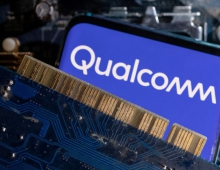
South Korea Fair Trade Commission Probes Qualcomm
Qualcomm is facing an antitrust investigation in SouthKorea related to its licensing practices. The company confirmed that it has recently received the Korea Fair Trade Commission's staff-generated Case Examiner's Report (ER), which commences a process that affords Qualcomm the ability to respond to allegations and defend itself.
The ER alleges, among other things, that Qualcomm do not properly negotiate aspects of its licenses, and that the company's practice of licensing its patents only at the device level and requiring that its chip customers be licensed to its intellectual property violate Korean competition law. The ER proposes remedies including modifications to certain business practices and monetary penalties.
"The allegations and conclusions contained in the ER are not supported by the facts and are a serious misapplication of law," Qualcomm said. "Our patent licensing practices, which we and other patent owners have maintained for almost two decades, and which have facilitated the growth of the mobile communications industry in Korea and elsewhere, are lawful and pro-competitive. Device level licensing is the worldwide industry norm, and Korean companies have long enjoyed the benefits and protections of access to our patents, which cover essentially the entire device."
Qualcomm will "vigorously" defend itself at the Commission hearings and remain hopeful that the Commission will reject the conclusions of the Examiner's Report.
Qualcomm has faced investigations about its business and licensing practices in the U.S. and in the European Commission. It said in February it had settled with China's National Development and Reform Commission in connection with the agency's investigation of Qualcomm under the country's anti-monopoly law.
Samsung Electronics, LG and Pantech are key Qualcomm customers in South Korea. The KFTC in 2009 ordered Qualcomm to pay $208 million for allegedly charging discriminatory royalties and offering conditional rebates in connection with its CDMA technology, which were largely aimed to get mobile handset makers to meet more of their demand with Qualcomm chips.





















